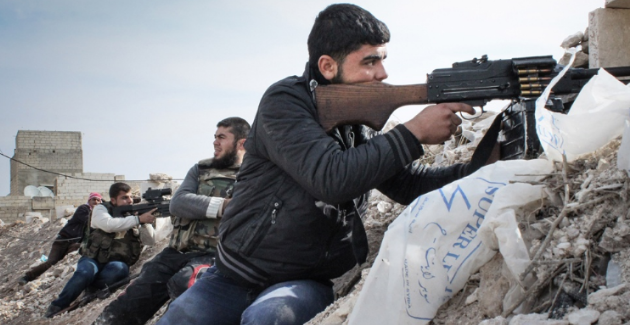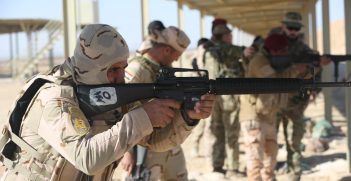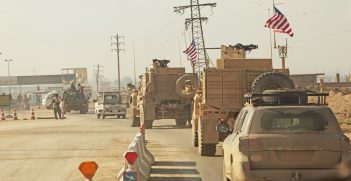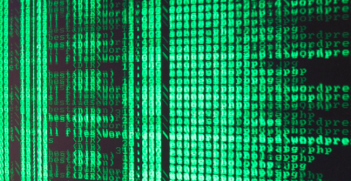Humanitarianism and the “War on Terror” in Syria

The ramifications of Western military involvement in Syria reveal the complex nature of humanitarian intervention.
Some five years ago, reporters called for “any means necessary” to protect the beleaguered peoples of Syria from President Assad’s forces. Now that Syrian Government victory is more or less an accomplished fact and the intervening Western forces discussing withdrawal, we can begin to construct a post-mortem of the eight-year-long war and the future of humanitarianism, counter-terrorism and conflict resolution.
While ongoing admonitions about President Assad’s malicious intentions for the huddled masses of Syria might – in the short-term at least – save the public from a degree of critical introspection, we will soon have to face the reality that the Syrian Civil War marks a qualitatively new step in humanitarian campaigns. Against all odds, the “evil dictator” and his regime have survived. The forces of humanitarianism have lost.
What are we to make of this situation? Will the France-UK-US coalition deign to accept this as the new “normal” for humanitarian intervention and the Middle East in general? Or will they continue attempts to coerce the Assad Regime from power? Despite President Trump’s call for withdrawal, the ongoing US occupation of the resource-rich north-east and Washington’s pledge to withhold necessary reconstruction funds so long as President Assad is in power suggests the latter. Most interesting, however, is the last-ditch effort Western states have made to prevent terrorist-occupied Idlib from being reintegrated into Syria proper.
It is worth reminding ourselves that the United States claims that it is still actively engaged in a “war on terror”, in which the metric of success would reasonably include the dismantling of terrorist networks by depriving them of resources and fighters. Currently, however, the Syrian Government and Russian Forces are the only ones really achieving this. The Western coalition, on the other hand, has put pressure on them to cease doing so. The coalition simultaneously claims that those occupying Idlib are some form of secular democratic opposition, rather than Salafi jihadists and mercenary killers, and issue ongoing demands that Assad cede political power to these same groups for their efforts.
Let’s not forget that President Assad remains the sovereign ruler of Syria and, unless the United Nations Security Council passes a resolution authorising military intervention in accordance with the Responsibility to Protect against his government, retains primary responsibility for the protection of his people. Russia and China have, from the war’s outset, cited the precedential application of Resolution 1973 by Western states to topple the Gaddafi Regime in Libya to veto a similar resolution against Assad in Syria. They point to the open-air slave markets and ongoing extremist violence that has now spread across Libya and ask whether this is an acceptable future for the Syrian people.
Has the “war on terror” been temporarily suspended in pursuit of more immediate geopolitical goals? Reports noting that American-supplied weaponry ended up in the hands of al-Qaeda and that the White Helmets may not be as morally upstanding as for some have presumed seem to suggest so. In this new policy priority framework, any sovereign government below Western standards of rule of law, gender equality, political freedom, and freedom of speech may be a more valid target for intervening forces than the sworn (terrorist) enemies of the United States.
President Assad himself noted the attendant political problem facing the Western coalition in an early interview with Charlie Rose: that if he is in any way coerced from power in favour of extremists, a highly volatile precedent is established. Namely, that if any extremist group can instigate an insurgency against a sovereign government and tally enough corpses, the international community – regardless of UNSC authorisation – may legitimately elect to intervene in a manner such that at least some of that group’s objectives – such as regime change – will be achieved.
In other words, efforts towards the removal of President Assad’s government would invite the assumption that violence can be used to supplant legal and political processes in opposing an otherwise sovereign regime. They would further suggest that that regime cannot defend itself against nascent domestic insurgency for fear of provoking further intervention in support of the opposition. It finally provides a perverse incentive for opposition groups (or the clandestine agents of an opposing state) to create or stage conditions suggesting that a state is attacking its own people (known as “false flag” attacks).
Under no moral paradigm can terrorist activities be privileged or even incentivised over due political process, not even against President Assad’s regime. However, those who continue to object to intervention in Syria are asked what policy alternative they propose. Should the West suffer a murderer to rule? Or do they think that the United States and its allies should forego hegemony in the Middle East altogether?
To answer this question, we need to go back to basics: what are we actually doing in Syria?
We’ve crossed the Rubicon where most can see that “humanitarianism” – as it stands – has run its course. Humanitarians don’t fight to put terrorists in power. Nor do they coerce a population to disown their sovereign leader. President Assad may lead a despicable security state, but that isn’t really relevant in strategic terms. Most Syrians simply want the war to be over and the most sustainable means of achieving that outcome is likely going to be the Syrian Government’s total military victory.
If the intervening Western states are indeed humanitarians fighting for the best interests of the Syrian people, their best option is to begin peace negotiations with the Assad Regime now. This way, they can exercise at least some leverage to ensure President Assad fulfils his promise to amend the constitution, ending Ba’ath monopoly on power and allowing multiparty elections, before troop withdrawals become inevitable. If they continue to oppose President Assad’s rule and Russian and Iranian presences in the country, they will simply prolong the fighting and be locked out of an ultimate political solution, which will likely be a return to the status quo ante bellum, and domestic support for their efforts will dwindle.
It’s a choice between the Syrian people or the terrorists in control of Idlib. Humanitarian policy is only as good as the humans it fights for.
Nicolas Johnston has a masters degree from the Australian Defence Force Academy (UNSW Canberra). He received his BA in Political Science and International Comparative Studies from Duke University, North Carolina.
This article is published under a Creative Commons Licence and may be republished with attribution.





